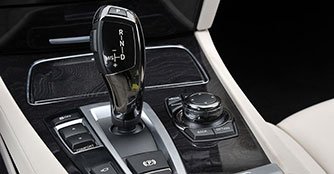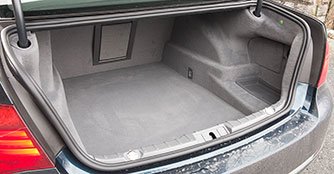BMW 7 Series 730d xDrive (A) First Drive Review
25 Nov 2013|17,568 views
The BMW 7 Series has been around since the late 70s, with the E23 being the first car to represent itself as the Bavarian marque's flagship model. But the model has always been in the shadows of the Mercedes S-Class and Audi A8 in terms of its comfort and design respectively.
After decades of updates, on both the sheet metal and engine, things are looking up for the 7 Series. The facelifted petrol-powered 7er that we tested late last year proved that very fact, with its luxury of goodness, familiar elegance and flexible powerplant.
But can the updated diesel powerplant, with its lower emissions and higher performance figures, be good enough to compete with the Mercedes S-Class, Audi A8 and the Jaguar XJ?
Up close and Personal
There's plenty to like about the current 7er. The wedge on the front is less obvious now and has been replaced with a more thrusting nose, giving it more authority without losing its elegance. While it's definitely softer and better-looking from the front, the rear end remains to be aggressive, with chunky LED taillights taking the limelight.
The 7 Series has always struggled to match the imposing styling of rivals like the Mercedes S-Class, Audi A8 and the Jaguar XJ. While it's still the case with the car that you see here, the car is more dignified now, with balanced proportions that convey poise and sturdiness.
After decades of updates, on both the sheet metal and engine, things are looking up for the 7 Series. The facelifted petrol-powered 7er that we tested late last year proved that very fact, with its luxury of goodness, familiar elegance and flexible powerplant.
But can the updated diesel powerplant, with its lower emissions and higher performance figures, be good enough to compete with the Mercedes S-Class, Audi A8 and the Jaguar XJ?
Up close and Personal
There's plenty to like about the current 7er. The wedge on the front is less obvious now and has been replaced with a more thrusting nose, giving it more authority without losing its elegance. While it's definitely softer and better-looking from the front, the rear end remains to be aggressive, with chunky LED taillights taking the limelight.
The 7 Series has always struggled to match the imposing styling of rivals like the Mercedes S-Class, Audi A8 and the Jaguar XJ. While it's still the case with the car that you see here, the car is more dignified now, with balanced proportions that convey poise and sturdiness.
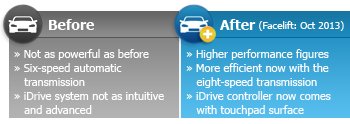 |
And it's the same on the inside. Few can find fault in here. From the steering wheel and the dashboard to the leather seats and door panels, the cabin spells quality.
It may lack the stylish look of the Jag, but the interior is a convincing interpretation of modern luxury with high levels of comfort and classiness. Credit for this also goes to the clean and clear centre console, thanks to the redesigned iDrive system, which houses numerous functions.
Sporting more bells and whistles, this said system now allows handwritten manoeuvres to be executed and functions in a more intuitive fashion than before.
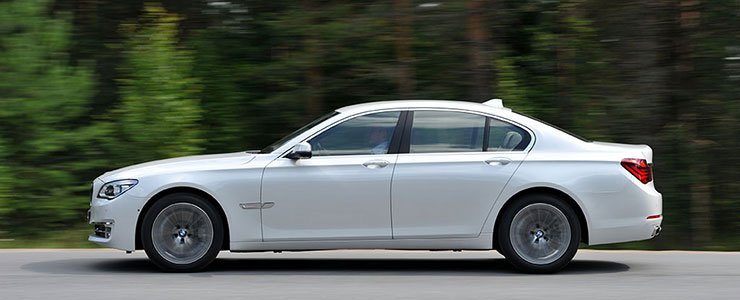 |
Drivetrain
With the BMW 730d, it's almost apparent that having any other kind of petrol engine of the same capacity, space and comfort seems incompetent.
Residing under the long bonnet is a 3.0-litre straight-six turbo diesel that sends 258bhp from 4,000rpm and a massive twisting force of 560Nm from just 1,500rpm to all four wheels - enough to launch it effortlessly ahead of traffic and just the perfect extent you need for an imperious cruising often talked about by limousines.
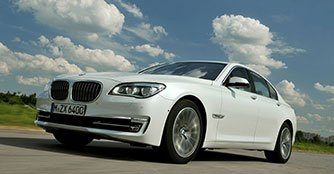
 The car's performance is impressive, completing the century sprint in a hot hatch fashion of just six seconds
The car's performance is impressive, completing the century sprint in a hot hatch fashion of just six seconds
Coupled with the fact that it's mated to a smooth and seamless eight-speed automatic transmission gearbox, it propels the two tonne 7er to the century mark in a decent six seconds. To put that into performance perspective, it's half a second faster than the Golf GTI and the Jaguar XJ and more than a second faster than the Mercedes-Benz S-Class S350.
Measuring at 5,079mm x 1,902mm x 1,471mm (L x W x H), the 7 Series is a sizeable car. Yet, it's so agile that it still manages to feel just as comfortable on the twisties as it does on the highway. You'll seldom feel its vast dimensions, which helps a lot especially when you're up against Munich's narrow lanes.
With the BMW 730d, it's almost apparent that having any other kind of petrol engine of the same capacity, space and comfort seems incompetent.
Residing under the long bonnet is a 3.0-litre straight-six turbo diesel that sends 258bhp from 4,000rpm and a massive twisting force of 560Nm from just 1,500rpm to all four wheels - enough to launch it effortlessly ahead of traffic and just the perfect extent you need for an imperious cruising often talked about by limousines.

Coupled with the fact that it's mated to a smooth and seamless eight-speed automatic transmission gearbox, it propels the two tonne 7er to the century mark in a decent six seconds. To put that into performance perspective, it's half a second faster than the Golf GTI and the Jaguar XJ and more than a second faster than the Mercedes-Benz S-Class S350.
Measuring at 5,079mm x 1,902mm x 1,471mm (L x W x H), the 7 Series is a sizeable car. Yet, it's so agile that it still manages to feel just as comfortable on the twisties as it does on the highway. You'll seldom feel its vast dimensions, which helps a lot especially when you're up against Munich's narrow lanes.
The remarkable chassis manages to find a sweet spot between comfort and control, soaking up road imperfections without making occupants uncomfortable.
Conclusion
The BMW flagship model embodies sporting elegance, refined powertrain technology and luxurious comfort in equal measure and this diesel powerplant is no different.
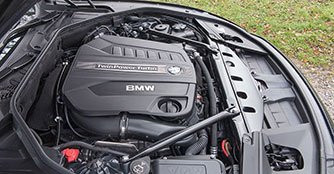
 With 258bhp and 560Nm of torque ready to unleash to all four wheels, the 730d xDrive is a gem to behold
With 258bhp and 560Nm of torque ready to unleash to all four wheels, the 730d xDrive is a gem to behold
Do not be misled for a minute into thinking that the BMW 730d is somehow an inferior brethren to the petrol-powered cars from the Bavarian carmaker.
Providing a very engaging drive is the very good reason for buying the 7 Series, and it is the precise reason you'd be less inclined to buy any other flagship models.
Conclusion
The BMW flagship model embodies sporting elegance, refined powertrain technology and luxurious comfort in equal measure and this diesel powerplant is no different.

Do not be misled for a minute into thinking that the BMW 730d is somehow an inferior brethren to the petrol-powered cars from the Bavarian carmaker.
Providing a very engaging drive is the very good reason for buying the 7 Series, and it is the precise reason you'd be less inclined to buy any other flagship models.
The BMW 7 Series has been around since the late 70s, with the E23 being the first car to represent itself as the Bavarian marque's flagship model. But the model has always been in the shadows of the Mercedes S-Class and Audi A8 in terms of its comfort and design respectively.
After decades of updates, on both the sheet metal and engine, things are looking up for the 7 Series. The facelifted petrol-powered 7er that we tested late last year proved that very fact, with its luxury of goodness, familiar elegance and flexible powerplant.
But can the updated diesel powerplant, with its lower emissions and higher performance figures, be good enough to compete with the Mercedes S-Class, Audi A8 and the Jaguar XJ?
Up close and Personal
There's plenty to like about the current 7er. The wedge on the front is less obvious now and has been replaced with a more thrusting nose, giving it more authority without losing its elegance. While it's definitely softer and better-looking from the front, the rear end remains to be aggressive, with chunky LED taillights taking the limelight.
The 7 Series has always struggled to match the imposing styling of rivals like the Mercedes S-Class, Audi A8 and the Jaguar XJ. While it's still the case with the car that you see here, the car is more dignified now, with balanced proportions that convey poise and sturdiness.
After decades of updates, on both the sheet metal and engine, things are looking up for the 7 Series. The facelifted petrol-powered 7er that we tested late last year proved that very fact, with its luxury of goodness, familiar elegance and flexible powerplant.
But can the updated diesel powerplant, with its lower emissions and higher performance figures, be good enough to compete with the Mercedes S-Class, Audi A8 and the Jaguar XJ?
Up close and Personal
There's plenty to like about the current 7er. The wedge on the front is less obvious now and has been replaced with a more thrusting nose, giving it more authority without losing its elegance. While it's definitely softer and better-looking from the front, the rear end remains to be aggressive, with chunky LED taillights taking the limelight.
The 7 Series has always struggled to match the imposing styling of rivals like the Mercedes S-Class, Audi A8 and the Jaguar XJ. While it's still the case with the car that you see here, the car is more dignified now, with balanced proportions that convey poise and sturdiness.
And it's the same on the inside. Few can find fault in here. From the steering wheel and the dashboard to the leather seats and door panels, the cabin spells quality.
It may lack the stylish look of the Jag, but the interior is a convincing interpretation of modern luxury with high levels of comfort and classiness. Credit for this also goes to the clean and clear centre console, thanks to the redesigned iDrive system, which houses numerous functions.
Sporting more bells and whistles, this said system now allows handwritten manoeuvres to be executed and functions in a more intuitive fashion than before.
It may lack the stylish look of the Jag, but the interior is a convincing interpretation of modern luxury with high levels of comfort and classiness. Credit for this also goes to the clean and clear centre console, thanks to the redesigned iDrive system, which houses numerous functions.
Sporting more bells and whistles, this said system now allows handwritten manoeuvres to be executed and functions in a more intuitive fashion than before.
Drivetrain
With the BMW 730d, it's almost apparent that having any other kind of petrol engine of the same capacity, space and comfort seems incompetent.
Residing under the long bonnet is a 3.0-litre straight-six turbo diesel that sends 258bhp from 4,000rpm and a massive twisting force of 560Nm from just 1,500rpm to all four wheels - enough to launch it effortlessly ahead of traffic and just the perfect extent you need for an imperious cruising often talked about by limousines.
Coupled with the fact that it's mated to a smooth and seamless eight-speed automatic transmission gearbox, it propels the two tonne 7er to the century mark in a decent six seconds. To put that into performance perspective, it's half a second faster than the Golf GTI and the Jaguar XJ and more than a second faster than the Mercedes-Benz S-Class S350.
Measuring at 5,079mm x 1,902mm x 1,471mm (L x W x H), the 7 Series is a sizeable car. Yet, it's so agile that it still manages to feel just as comfortable on the twisties as it does on the highway. You'll seldom feel its vast dimensions, which helps a lot especially when you're up against Munich's narrow lanes.
With the BMW 730d, it's almost apparent that having any other kind of petrol engine of the same capacity, space and comfort seems incompetent.
Residing under the long bonnet is a 3.0-litre straight-six turbo diesel that sends 258bhp from 4,000rpm and a massive twisting force of 560Nm from just 1,500rpm to all four wheels - enough to launch it effortlessly ahead of traffic and just the perfect extent you need for an imperious cruising often talked about by limousines.
Coupled with the fact that it's mated to a smooth and seamless eight-speed automatic transmission gearbox, it propels the two tonne 7er to the century mark in a decent six seconds. To put that into performance perspective, it's half a second faster than the Golf GTI and the Jaguar XJ and more than a second faster than the Mercedes-Benz S-Class S350.
Measuring at 5,079mm x 1,902mm x 1,471mm (L x W x H), the 7 Series is a sizeable car. Yet, it's so agile that it still manages to feel just as comfortable on the twisties as it does on the highway. You'll seldom feel its vast dimensions, which helps a lot especially when you're up against Munich's narrow lanes.
The remarkable chassis manages to find a sweet spot between comfort and control, soaking up road imperfections without making occupants uncomfortable.
Conclusion
The BMW flagship model embodies sporting elegance, refined powertrain technology and luxurious comfort in equal measure and this diesel powerplant is no different.
Do not be misled for a minute into thinking that the BMW 730d is somehow an inferior brethren to the petrol-powered cars from the Bavarian carmaker.
Providing a very engaging drive is the very good reason for buying the 7 Series, and it is the precise reason you'd be less inclined to buy any other flagship models.
Conclusion
The BMW flagship model embodies sporting elegance, refined powertrain technology and luxurious comfort in equal measure and this diesel powerplant is no different.
Do not be misled for a minute into thinking that the BMW 730d is somehow an inferior brethren to the petrol-powered cars from the Bavarian carmaker.
Providing a very engaging drive is the very good reason for buying the 7 Series, and it is the precise reason you'd be less inclined to buy any other flagship models.
Thank You For Your Subscription.





















